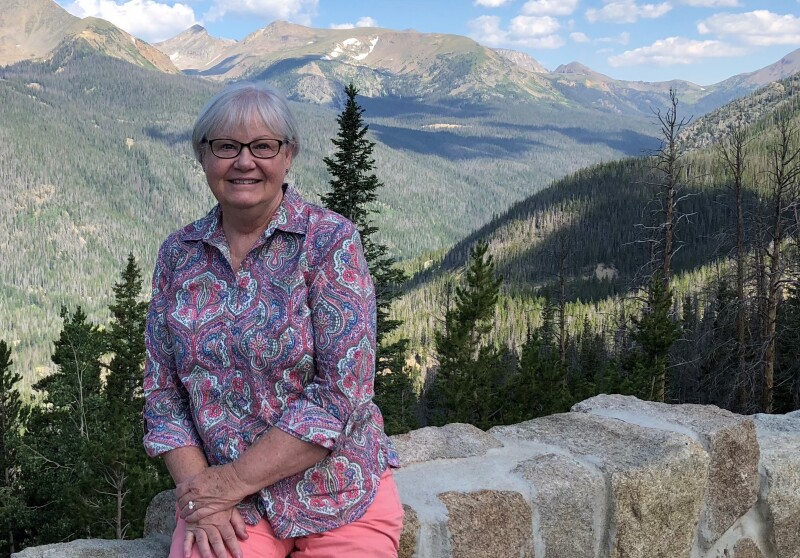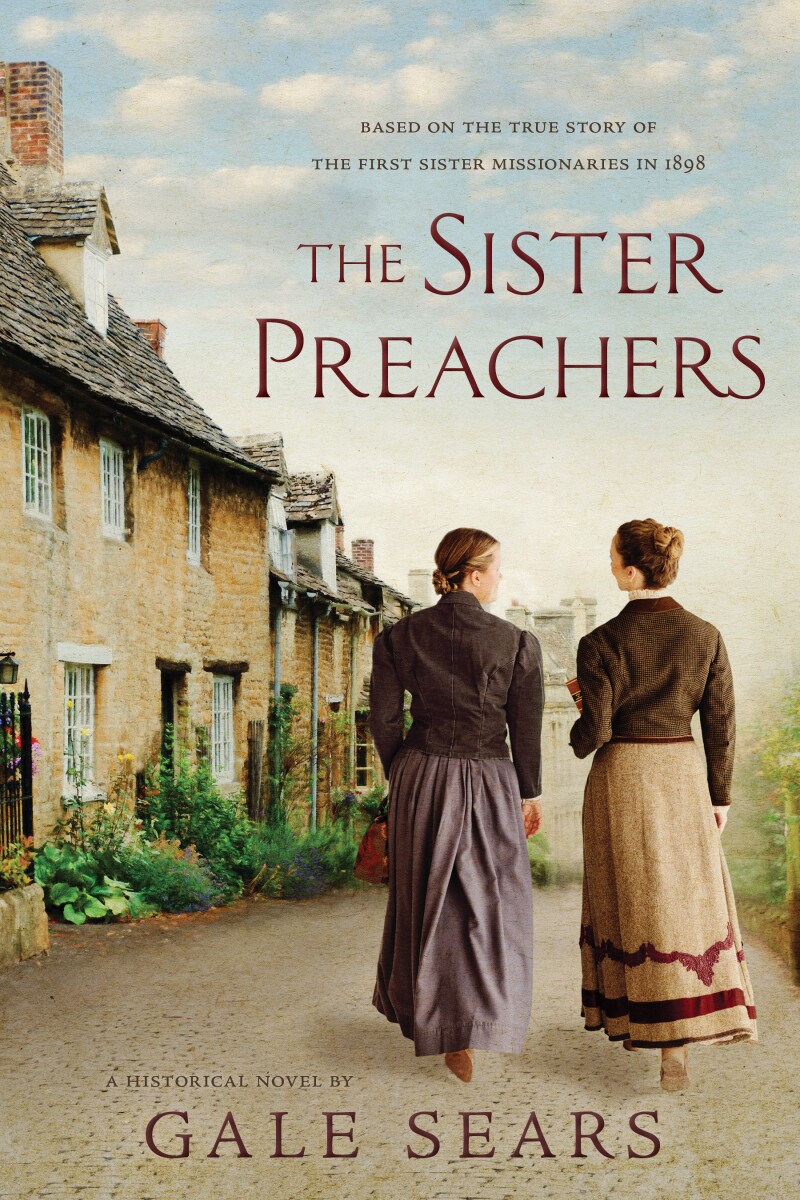An abridged version of this article appeared in the March/April issue of LDS Living magazine.
Gale Sears is an award-winning historical fiction author. Her newest novel, The Sister Preachers, is based on the true story of the first sister missionaries for The Church of Jesus Christ of Latter-day Saints. We recently asked Sears about her research, her writing process, and her faith.
What inspired you to write The Sister Preachers?
Being interested in the early efforts of sister missionaries in the Church, I was researching Inez Knight and Jennie Brimhall. I learned that Jennie was the daughter of George Brimhall, one of the first residents of BYU, and that she had graduated from Brigham Young Academy and was a teacher. Inez Knight was the daughter of a prominent businessman in Provo, and pretty much all her temporal needs were met. Yet, when they were called by the First Presidency in 1898 to be the first single sister missionaries in England, they gave all that up. They went off into this unknown “wilderness” to serve. That these young women went without much hesitation was very inspiring to me. Their story is one that really needs to be told.
What can today’s missionaries learn from The Sister Preachers?
I’m going to tear up a little bit. My husband and I served a mission in Rome, Italy, in 2015, and one of the things that completely overwhelmed both of us was the strength of the missionaries in general, and then for me, as a woman, to see the strength, fortitude, dedication, and love that these young women put into the mission. It was breathtaking.
The stories that I pulled out of Inez’s journal were all of those foibles and fears that she and Jennie had as they moved forward in this process. It was unknown territory—they didn’t have any other single sister missionaries to look to. It is inspiring to see how they made a path. What that they did when they encountered an obstacle is so useful, not only to sister missionaries nowadays, but to us individually as members of the Church because there are a lot of obstacles we need the faith to overcome.
What do you love about historical fiction?
You get the facts and you get the feelings of what people went through in actual situations. For example, with my book The Silence of God, I was just overwhelmed that the Lindlof family actually existed in history: the first and only Latter-day Saint family in Russia during the Bolshevik Revolution. After learning about them, I felt I needed to find more of these “firsts”—the first happenings in different countries and places.
▶ You may also like: Watch: Sister missionaries perform stunning hula to the Hawaiian song ‘Halleluia’
You wrote your first novels using a pencil and paper instead of a computer. Is that still the case?
The pressures of writing have actually caused me to move more to the computer. But if I get stuck and the creativity just isn’t coming, I often will go to pencil and paper. For some reason the story just kind of flows out and I can visualize it more in my mind. So while most of my writing needs to be done on the computer, those creative moments really come out through pencil on paper.
What is your process when researching for a story?
I go to original sources whenever possible. I happened to find Inez Knight’s journal at the BYU library, and she wrote specifically about the time period that she and Jennie spent in England, so that was a little gem. My husband and I also travel quite a bit, and what’s been lovely about that is that we go on trips focused on research that I’m doing for a book. Russia, England, Hawaii—we’ve been to all these magical places together as I’ve done my research.
As a writer, what you have learned about how to deal with discouragement and rejection?
I learned how to handle rejection in my days in theater. Because that is literally a constant rejection. … As you are writing a play, you have critics that will gladly tell you, ‘This is not good, you need to go back and rewrite this.’ So you need to accept other people’s opinions and understand why things are rejected, especially in the publishing world. You have to be able to not be devastated if you get rejected and be able to say, ‘It’s part of the process. I still believe in this piece of work that I’ve done. I might relook at it a little bit, and then I’ll put it to someone else to look at.’
What is something on your bucket list?
I have a play that I wrote back in 1987 when I was doing my master’s work with the University of Minnesota based on Maurice Maeterlinck’s play The Bluebird. Over the years, I’ve restructured the play and turned it into a musical. I’ve had several composers work on the music, but I just can never seem to get it across the finish line and get a production of it. So that’s something I’d really like to accomplish.
What is the most rewarding part of being a writer?
The secular world says, “I want money, and I want fame,” but when you consecrate your time and talents to the Lord, you understand that those things are not really important. The building of the kingdom is the important thing. As artists in the Church, we humbly and with a heart that loves the Lord dedicate our work to Him and hope it builds the kingdom.
▶ You may also like: Are you a Wordle fan? Here’s a twist on the game that may also improve your scripture study
What are you doing to reinforce your spiritual foundation during these unprecedented times?
We live in a time that is so unnerving and unsettling that I think we need to find the peace that the Spirit brings. I can’t get caught up in the fearmongering that’s going around right now or else I cannot hear the Spirit’s whisperings. So I think it’s coming to a place of calm where I’m able to hear the voice of the Spirit speaking to me. That’s what I search for. It’s an ongoing process, but if I can find that calm spot, I am much better.
The Sister Preachers
Available in Deseret Book stores and at deseretbook.com.



